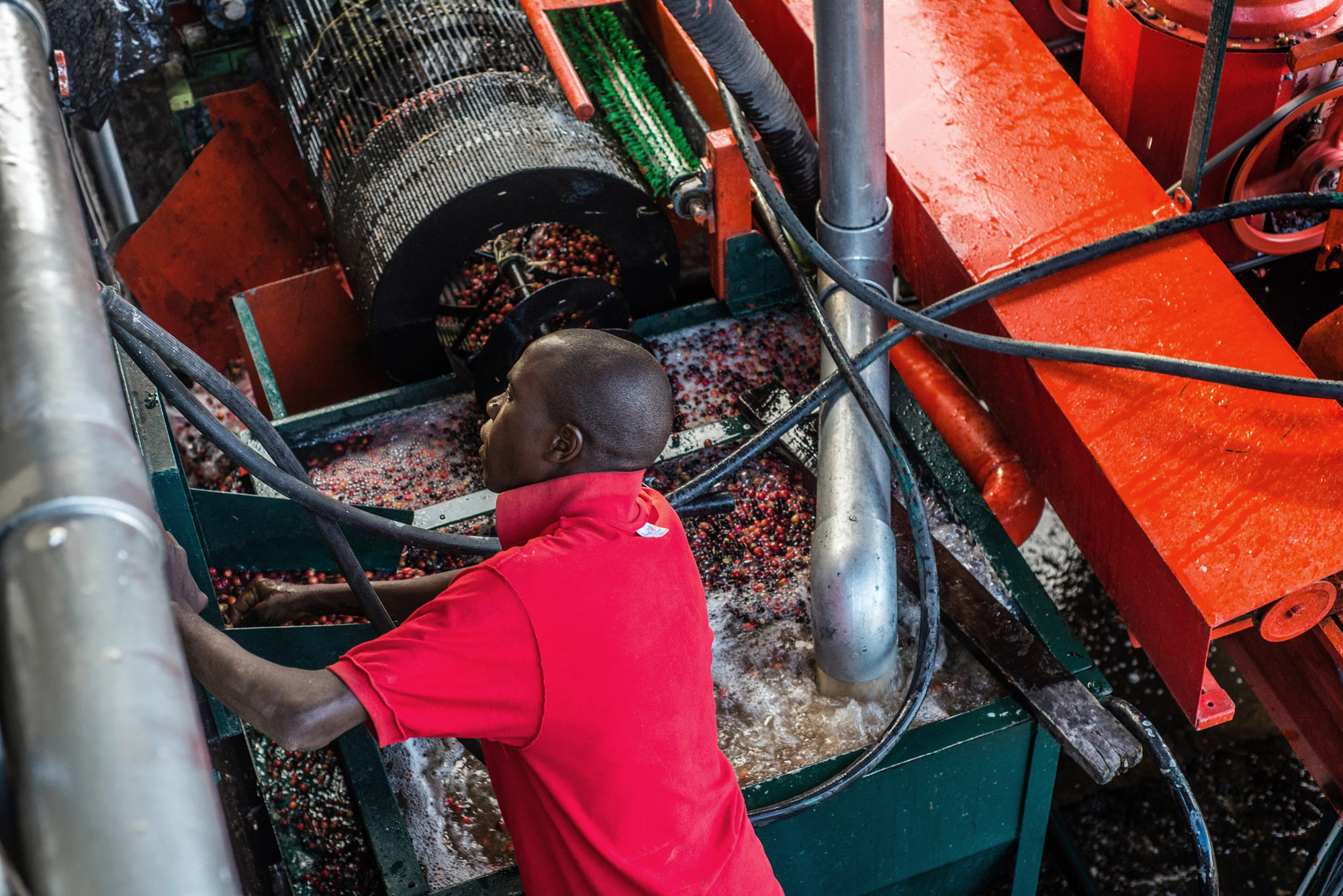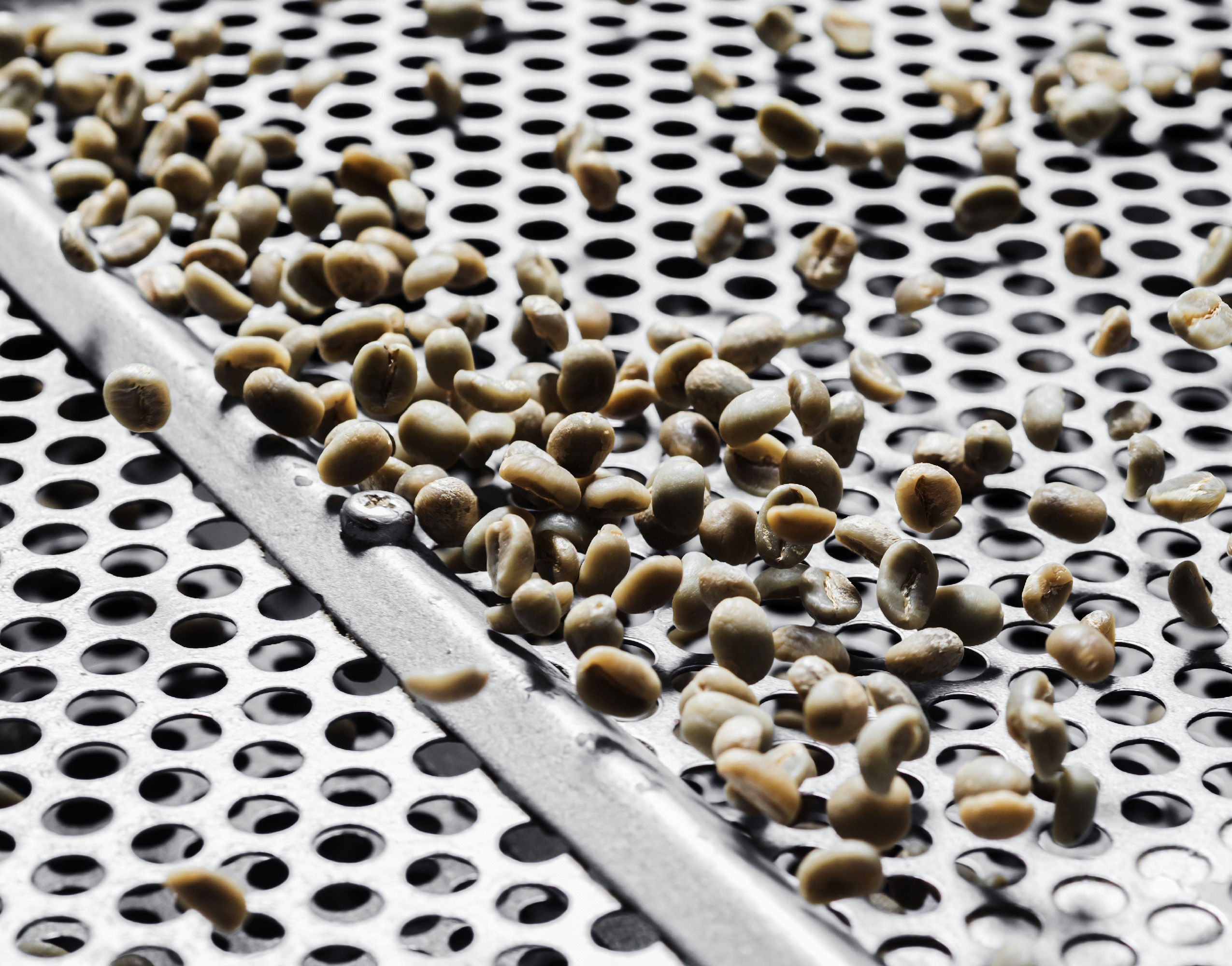Since harvesting in Brazil is rarely selective, overripe and unripe cherries must be separated during processing in order to create higher-quality lots. Farmers in Brazil typically leave the fruit on the tree for as long as possible before picking, to allow most of the fruit to ripen. The ripest cherries dry on the tree, becoming dark in colour, small, and wrinkled. These partially dried cherries are known as bóias (buoys) or raisins. As the name suggests, bóias float on water, so they can easily be separated from the rest of the crop in a floatation tank at the wet mill.
 Bóias, the small, dark, partially dried coffee cherries also known as ‘raisins’, are harvested alongside ripe and unripe fruit but processed separately
Bóias, the small, dark, partially dried coffee cherries also known as ‘raisins’, are harvested alongside ripe and unripe fruit but processed separately
Bóias are usually processed as natural coffees, and the remaining cherries are taken to the depulper. Ripe cherries are depulped and processed as pulped natural coffees, called ‘Cereja Descascado’ (CD) in Brazil, or occasionally as fully washed coffee. Unripe fruits, which are harder and therefore cannot pass through the depulper, are removed to be processed separately as low-quality natural coffees.
 Coffee cherries pass through a depulper to be processed by the pulped natural or ‘Cereja Descascado’ method
Coffee cherries pass through a depulper to be processed by the pulped natural or ‘Cereja Descascado’ method
Farmers typically process and hull their own coffee, creating bica corrida — the name for green beans that are no longer in parchment but have not yet been sorted or graded. The bica corrida is sent to the dry mill, where further sorting takes place by means of density tables, screens, and electronic colour sorters.
Most coffee-growing regions in Brazil have a distinct dry period during the harvest and processing season. The limited availability of water means that fully washed coffees are uncommon, and natural processing is the most common processing method.
In 1959 the Brazilian agronomists Barros Ferraz and Ary de Arruda Veiga proposed the pulped natural method,
